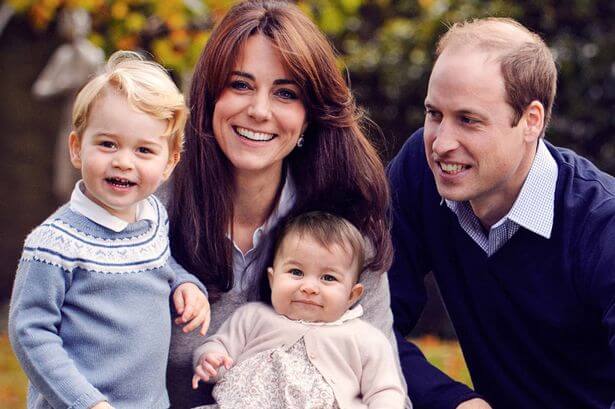A nuclear family, in oppose to an extended family, only comprises of two parents and their children. Also known as the elementary family or conjugal family, the nuclear family’s concept became popular with the rise in capitalism in the US.
The term `nuclear` originated from the Latin word `nucleus`, which in turn comes from another the Latin word `nux.` Nux is similar to `nut` in English. Merriam-Webster dates the term back to 1947. Hence, it’s a fairly new concept. The concept of the nuclear family really caught with the rest of the world in the 1950s when American media and government started advocating the concept of the nuclear family for social and economic prosperity.
In opposition to the joint family, the concept of nuclear family revolves around financial and economic independence. While the other members in the joint family provide essential assistance such as looking after the infant, cooking and sharing meals, etc. the nuclear family emphasis the role of external assistance for child care and maid service.
What is an example of a nuclear family? – Two parents and two kids.
Why do they call it the nuclear family?
The concept of living only with one’s spouse and children became popular in the 1920s when the U.S. remodeled its ideal family type from a large family to nuclear. This is linked to the country’s massive surge in industrialization.
As many large factories started opening up in the big U.S. cities, young men and women left their ancestral home and extended families to work in the cities. The young people married as soon as they turned 21 or 22 to beat loneliness. Living miles away from their ancestral home, these young people started nuclear families comprising of them, their spouse, and kids.
By 1960, 77.5% of all children were living with their two parents apart from their extended family. The massive commercialization gave birth to TV advertisements, hoarding boards, and product placements which were specifically targeted towards the nuclear family.
Experts opine that children raised in a nuclear family are only raised to become independent as soon as they reach adolescence and seek partners of their own to start a different nuclear family. This remains true mainly because in the U.S. the children move out of their house as soon as they complete their studies and assume their economic role in the family.
Individuals who grow up in a nuclear family structure are more child-centric and self-reliant. Generally, the parents share the responsibility of their children making them self-reliant. Also, the individual who chooses to create a nuclear family is generally those who have higher educational attainment and more economic mobility.
Although the definition and concept of the family have changed over the course of years, the basic criteria to become a family remain the same. A family is a group of people bound my relation, emotion, love, support, and a framework of values.
Advantages of the Nuclear Family
Approximately 68% of children live in a nuclear family unit, according to the 2016 U.S. Census data. Here are some of the advantages of raising a nuclear family.
Strength and Stability

The concept of the nuclear family strongly advocates strength and stability in the family through marriage. Pew Research Center concluded that 20% of people born to married parents experience divorce, while nearly 50% of kids in cohabiting families experience divorce.
When two parents get married and settle down, they advocate the image of strength, durability, and stability in the relationship to kids. Kids raised in such a family inspire to raise their own family one day. When both the parents are working individually, kids embody the image of independence, economic freedom, and responsibility in their adolescent.
Responsible and problem-free unit

The nuclear family doesn’t emphasize the shifting of responsibility like in an extended family. The two parents take sole responsibility for their children; hence the kids raised in such a family structure tend to be more responsible in life.
It is also known as the problem-free unit mainly because the financial problem is rarely seen in the nuclear family. Both parents work to save money for the future hence any unforeseen crisis is prevented.
The nuclear family concept built around independence and responsibilities hence people engaged in any economic activities to supplement the family income.
Financial Stability Equals More Opportunity

With strong economic stability in the family, the parents provide their children with luxuries, opportunities. The children raised in the nuclear family are more likely to attend extra-curricular activities such as dance, gymnastics, music, and sports.
Consistency offers a positive outlook

The successful nuclear family provides children with consistency in life. Raised in stabile and consistent family, they are more likely to exhibit positive behavior in life. Children are more likely to engage in community work. Eating meals together on a regular basis, going to church, visiting relatives, and taking family vacations are common in the nuclear family.
Encourages Higher Education

The concept of nuclear family encourages pursuing higher education for a better future. A recent study concluded that the children born to parents with college degrees are more likely to graduate college themselves.
With higher education, parents are more likely to provide for children. The emphasis of placement of value on higher education combined with a higher income level greatly improves the academic future of children.
Communication

Communication is the key to any family! The concept of nuclear family emphasizes the value of communication between family members. With fewer people in the family, it becomes easy to communicate with each other.
A small family also features fewer obstacles and distractions which encourages children to come forth and share their experiences, beliefs, or opinions. With the rise in the use of the internet among children, parents can easily monitor their children’s online participation.
Development of Personality
The successful parents in the Nuclear family advocate the development of personality in their kids. Parents play an important role in the development of the personality of children. When children are closer to their parents they can easily share their problems.
Two parents working together can help shape the personality of their children from a young age.
Better Condition of Women

The status, condition, and economic freedom of a woman in a nuclear family are better than those in the joint families.
Most women in an extended family spent more time in household chores such as cooking and cleaning while women in a nuclear family work for their economic independence. Seeing this image can definitely inspire their children to respect women.
Less number of children

Nuclear families advocate fewer children hence less mouth to feed. With the rising cost of living and scarcity of natural resources, people are finding it easy to raise fewer children. Limiting the number of children in a family can help plan better for the future of one or two children. Parents can invest more time, resources, and money on one or two kids.
Although the concept of the nuclear family is popular around the world, it isn’t free from criticism. David Brooks, a Canadian-born American conservative political and cultural commentator, believes that the concept of the nuclear family is a mistake.
By removing children from a large family circle, we have placed them in an isolated family structure where they spend most of their time by themselves. It is mainly true because both parents in the nuclear family go out for work leaving children in the care of a nanny.
Meanwhile, children in an extended family can enjoy exposure to different family members throughout the day.
Even though the nuclear family definition often faces slack from many critics and child development experts for its emphasis on individualism and independence, families are moving from extended family structure to nuclear family throughout the world to avoid familial conflicts and dependence.